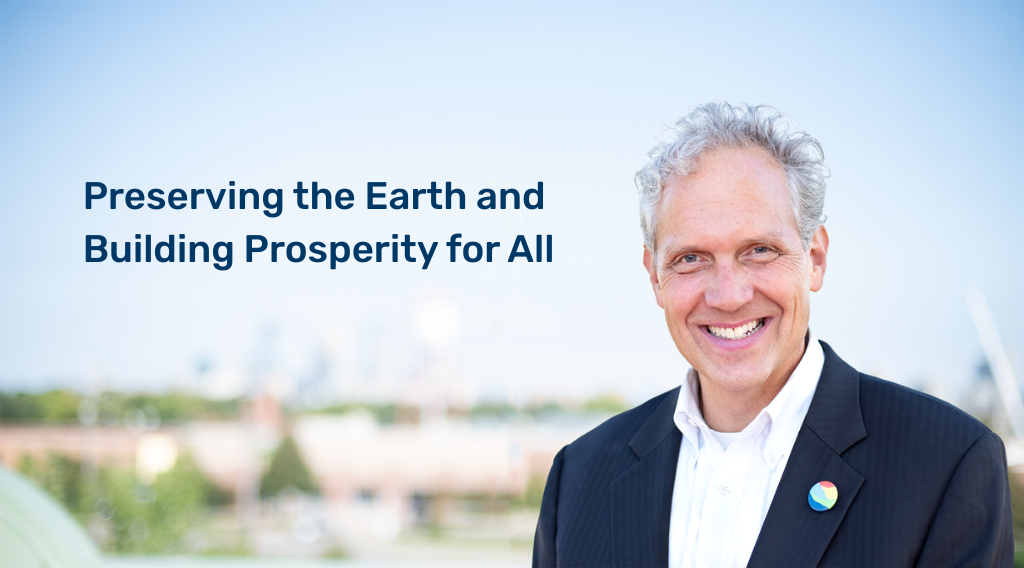
Follow this new series that will feature GPI staff picks throughout the year. From podcasts to the latest analysis, you can check out what we’re interested in right now.
Article | “Liebreich and McCrone: The shift to ‘base-cost’ renewables: 10 predictions for 2017,” by Michael Liebreich and Angus McCrone of Bloomberg New Energy Finance
As we close out the year, I find it instructive to look back at these ten provocative predictions for 2017 from Michael Liebreich, Chairman of the Advisory Board for Bloomberg New Energy Finance and Angus McCrone, Chief Editor. Continued improvements in the size and power output of wind turbines—both on- and off-shore—and the rise of electric vehicles are particularly noteworthy, but you’ll want to read the full list and make your own predictions for 2018.
– Rolf Nordstrom, President and CEO
Podcast | “The Inconvenient Truth about Cities and Sustainability” by the Energy Gang from Greentech Media
The first half of this Energy Gang podcast looks into one of the key topics we’ve been discussing on the communities team, which is the role of local governments in addressing climate change and advancing clean energy solutions. A few of my colleagues were rightly concerned about the term “inconvenient truth,” but don’t judge a podcast by its title — the gist of the discussion is that many local governments are setting lofty renewable energy and climate goals, and it’s vitally important that those goals are matched with equally lofty actions. What I love about this podcast is that it explores the diversity of perspectives on how to do that, which is a conversation in which we all need to engage.
– Trevor Drake, Project Manager
Podcast | “Distributed Energy’s Wholesale Opportunity” on UPenn’s Energy Policy Now podcast
I recently listened to a podcast from UPenn’s Energy Policy School, which hosted a discussion with Ari Peskoe, a Visiting Scholar at UPenn and Senior Fellow in Electricity Law at Harvard. Ari gives a nice overview of the opportunities and challenges of distributed energy resource participation in wholesale electricity markets. This is an emerging business opportunity for solar and energy storage, and an issue we work on directly through GPI’s analysis and stakeholder work developing new market rules in the Midcontinent wholesale electricity market for clean energy technologies.
– Steve Dahlke, Associate
Article | “It’s time to start talking about negative carbon emissions” by David Roberts at Vox
Earlier this year, Vox writer David Roberts shared analysis on why we need to actively remove carbon emissions (e.g., go ‘carbon negative’) to reach global carbon emissions targets. As he points out, reaching global targets will not only require natural sequestration, but also projects that capture and store carbon underground. And to go carbon negative, these projects must be paired with bioenergy. I was excited to see a national publication bring attention to and make the case for this critical strategy. GPI has worked to advance carbon capture and storage, and bioenergy projects, for over a decade – and the importance of these projects as a national energy, economic, and environmental strategy continues to grow. In addition to the Vox article, check out “Mitigation is Not Enough,” a blog post which was written last year by my colleague Brendan Jordan about various carbon removal strategies.
– Jennifer Christensen, Managing Editor and Senior Writer
Podcast | “Proterra CEO: Every New Transit Bus Will Be Electric by 2030,” by the Energy Gang from Greentech Media
I listened to a very interesting interview with the CEO of Proterra, a California-based company run by a former Tesla employee that produces fully electric buses. He goes over all the reasons that this technology is advancing so rapidly and why Proterra can barely make buses quickly enough to keep up with orders. EV transit buses offer a premium transportation experience (silent and smooth operation, no vibrations, smooth acceleration), clean operation (zero tailpipe emissions, low full lifecycle emissions), and public health benefits (zero tailpipe emissions, again). They are cheaper to operate than diesel or natural gas buses, today, and battery prices are plummeting! There are some other great companies in the EV transit bus market; Proterra is a great example of the rapid change enabled by cheap batteries and a decarbonizing electric grid.
– Brendan Jordan, Vice President


